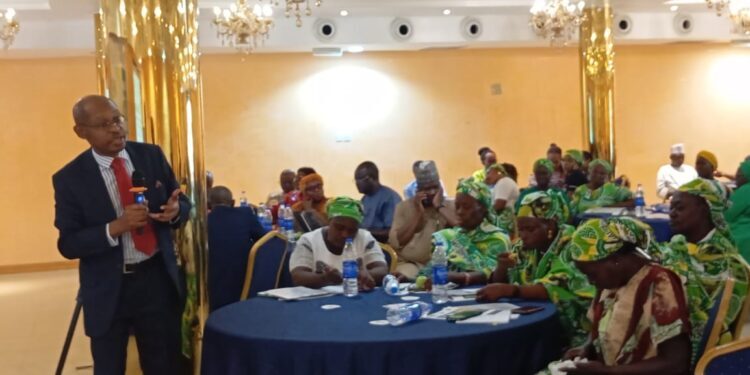By Abubakar Yunusa
The Centre for Social Justice (CSJ) has decried the Federal Government recent importation of 2,000 tractors from Belarus and neglecting homegrown agricultural innovations that could have boost technology improvement and food security in the country.
The Lead Director, CSJ, Barrister Eze Onyekpere said that the move was a disservice to Nigeria’s agricultural advancement.
He was speaking on Tuesday in Abuja at the National Workshop on Improving Visibility and Linkages between Agricultural Research Extension Services and Farming for Sustainable Food Value Chain in Nigeria.
The two-day event was organised by the CSJ, with the support of Heinrich Boll Stiftung (HBS) Nigeria, Agricultural Research Council of Nigeria (ARCN) and the Small Scale Women Farmers Organisation of Nigeria (SWOFON).
The workshop was also intended to review findings from the study on Agriculture Research Institutes and Needs Assessment of Small Scale Women Farmers; achievements, challenges, opportunities, connecting farmers and forward steps for Agriculture Research Institutes; Agriculture Research, Training and Extension Services and Agriculture Insurance.
It was also to review strengthening the roles of subnational governments, farmers associations, financial institutions and technologies to improve farm extension service, and use of research for food security optimization in Nigeria.
Onyekpere questioned the rationale behind abandoning indigenous research outputs in favor of foreign imports, calling the move a disservice to Nigeria’s agricultural advancement.
“Government can afford to do better. But the important thing is, what is the value of producing results and letting it lie on the shelf? For instance, the National Center for Agricultural Mechanization has produced mini-tractors, weeders, harvesters, and threshers.
“Recently, the President just launched 2,000 tractors. And I wanted to hear where they got it from. Of all places in the world, they were imported from Belarus.
“I was expecting if it’s not Nigeria maybe he should have said he got it from the United States, Britain, China, Japan, Germany, and suddenly it’s from Belarus. So what are we doing with the result of their research?” he said.
He also lamented the poor impact of publicly funded research institutes which affects agricultural productivity noting that research outcomes should not sit on shelves or remain in academic journals, but be translated into real-world solutions that meet the needs of farmers particularly the smallholder women who are the backbone of Nigeria’s food system.
Onyekpere said, “We found out that we have so many research institutes that are publicly funded, from those in different crops to fisheries to animal husbandry. But we’ve not had improved productivity, improved yield per hectare, and been able to tackle the prevalent pests and diseases across the nation and across so many crop value chains.
“What exactly are they doing, what are the innovations, what are the findings? And of course as we progress in this workshop you discover that there is a gap, there is a challenge, because the research institutes are doing tremendous good work. But that work is not getting into where it should go into to improve agriculture and to make sure they adopt good farming practices across the nation.”
The CSJ boss said that the workshop aims to bridge the gap between what the research institutes and small holder farmers are doing vis-a-vis government interventions to proffer solutions to lack of agricultural productivity in Nigeria.
Also speaking at the event, the Country Director Heinrich Boell Foundation, Sophie von Knebel, charged Nigeria government to leverage on the challenges facing its agricultural system by leveraging on the opportunities and taking immediate, practical actions that can transform how knowledge is generated, shared, and applied.
Knebel equally advocated for solutions that are not only impactful but also implementable in the short term, and sustainable in the long run in the country.











